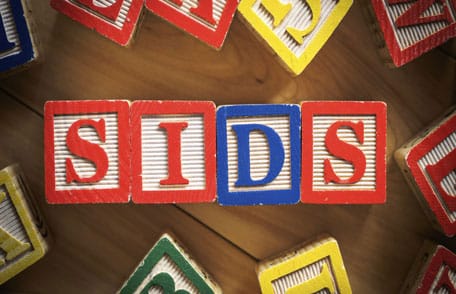October 16, 2015

Learn more about infant deaths from SIDS and other causes, and take action to reduce the risk. Start by always placing babies on their backs to sleep.
Understanding the Problem
About 3,500 infants die suddenly and unexpectedly each year in the United States. These deaths are called sudden unexpected infant deaths (SUID). Often, an autopsy alone cannot explain these deaths without investigating the scene and reviewing the infant’s medical history.
The most common causes of SUID include the following:
- Sudden Infant Death Syndrome (SIDS) is the sudden death of an infant less than 1 year old that cannot be explained after a thorough investigation that includes a complete autopsy, examination of the death scene, and a review of the medical history. SIDS is the leading cause of death for infants aged 1 to 12 months. About half of SUIDs are SIDS.
- Unknown Cause is the sudden death of an infant less than 1 year old that cannot be explained. Often, a thorough investigation was not conducted, and cause of death could not be determined.
- Accidental Suffocation and Strangulation in Bed (ASSB) is the leading cause of infant death due to injury. Things that can lead to accidental suffocation or strangulation include the following: ◦Suffocation by soft bedding—for example, when a pillow or waterbed mattress covers an infant’s nose and mouth.
- Overlay—for example, when another person rolls on top of or against the infant.
- Wedging or entrapment—for example, when an infant is wedged between two objects such as a mattress and wall, bed frame, or furniture.
- Strangulation—for example, when an infant’s head and neck get caught between crib railings.
Black and American Indian/Alaska Native infants are about twice as likely to die of SIDS and other sleep-related SUID as white infants.
Reducing the Risk
Doctors and researchers don’t know the exact causes of SIDS. However, research shows that parents and caregivers can take the following actions to help reduce the risk of SIDS and other sleep-related causes of infant death:
- Always place babies on their backs to sleep for every sleep.
- Use a firm sleep surface, such as a mattress in a safety-approved crib, covered by a fitted sheet.
- Have the baby share your room, not your bed. Your baby should not sleep in an adult bed, on a couch, or on a chair alone, with you, or with anyone else.
- Keep soft objects such as pillows and loose bedding out of your baby’s sleep area.
- Do not smoke during pregnancy or around the baby because these are important risk factors for SIDS. The risk of SIDS is even stronger when a baby shares a bed with a smoker. To reduce risk, do not smoke during pregnancy, and do not smoke or allow smoking around your baby. For help in quitting, call the quitline at 1-800-QUIT-NOW (1-800-784-8669) or visit Smoke Free Women Website.
For more information on reducing the risk of SIDS
